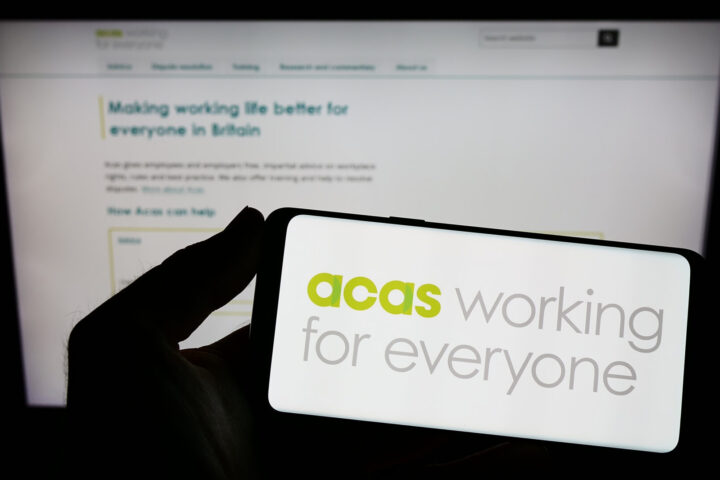Research conducted by Westfield Health earlier this year shows that a third (32%) of UK workers report that their physical health has worsened over the past five years, and the trend is not evenly distributed across the UK.
What’s behind this worrying trend?
The UK’s health infrastructure has faced escalating strain in recent years. There are currently 7.3 million on NHS waiting lists, and a growing difficulty in securing GP appointments. This demand for specialist care has left many unable to access healthcare in a timely and appropriate manner.
When people can’t get timely support, it takes a cumulative toll not just on their wellbeing but on their everyday life. Although some treatments may be classified as non-urgent by the NHS, many involve challenging conditions or injuries that can have a significant impact on quality of life.
The effects of these delays are particularly far-reaching and extend to broader economic issues, such as presenteeism and long-term employee absence. As physical health declines, so does motivation, energy and performance at work.
Coupled with rising financial pressures, the impact on mental and physical health can be profound. Our data reveals that nearly half of UK workers (49%) experience heightened anxiety due to the ongoing cost-of-living crisis and inflation, factors that only deepen the country’s health challenges.
The Government’s shift on private healthcare
Recently, Health Secretary Wes Streeting announced the 10 Year Health Plan for England, with prevention at its core. This includes increased health screenings, earlier diagnosis, vaccination drives, and lifestyle initiatives like pharmacy-led weight loss services. It’s a welcome shift towards tackling illness before it escalates.
Streeting has been clear: Labour will work closely with the private sector to reduce NHS waiting lists and ensure that healthcare remains affordable and accessible to as many as possible. Plans are also underway to explore public-private partnerships for neighbourhood health centres, with a formal proposal expected in this year’s Autumn Budget. This signals that private healthcare is here to complement the NHS.
However, there is now support among some MPs for plans to apply VAT to private healthcare—potentially making it 20% more expensive at a time when many people are already struggling to access timely care.
This creates a mixed message. With NHS waiting lists at record levels and businesses already managing increased National Insurance costs, introducing VAT would place an additional strain on employers who already working hard to support worker wellbeing.
This matters for private health insurance. For too long, the sector has been viewed as either a luxury or a fallback. But this missed the point. Solutions like health cash plans, private health insurance and private medical insurance are increasingly how people access routine care and preventative services—support that helps them stay healthy, long before surgery or hospitalisation is needed.
Private health insurance and health cash plans do more than just cover treatment. They provide access to mental health support, physiotherapy, screenings, dental and optical care and more. These aren’t luxuries, they’re the tools people use to stay healthy and avoid serious issues in the first place.
If the UK Government wants to reduce pressure on the NHS, it must support models that keep people out of hospital, not just treat them faster. That means recognising that private cover is already filling a gap in prevention and everyday care.
Private healthcare misconceptions continue
While demand for private healthcare has continued to increase in recent years, with four in 10 (37%) workers having used it in 2024 and half (50%) considering it this year, misconceptions persist. Many still believe private health insurance is out of reach or unaffordable, particularly when access to healthcare is seen as a right, already paid for through taxes and free at the point of need.
However, according to 2025 Westfield Health data, health cash plans can be cheaper than a standard Netflix Plan*. Our most affordable plan sits at £6.91 a month, compared to one month’s Netflix subscription of £12.99. This monthly investment can offer significant value by enabling faster diagnosis, quicker referrals and earlier treatment, making a real difference to people’s long-term health.
The workplace benefits landscape is evolving, too. One in five UK workers identifies access to private health insurance as the most valuable benefit their employer could offer. This presents a meaningful opportunity for businesses to drive positive change.
We know that more employers are integrating preventative healthcare into their employee benefits, from subsidised screenings to digital wellbeing platforms. These initiatives aren’t just perks; they’re powerful tools for reducing sick days, boosting morale and retaining talent in a competitive market.
When designed with inclusivity and affordability at their core, such benefits not only enhance employee experience but also help ease pressure on public health services. At a time when many businesses are balancing cost pressures, including rising employer National Insurance contributions, investing may seem like an additional cost. But offering prompt access to care remains a valuable way to support employees and reduce the anxiety associated with long public waiting times and financial uncertainty.
Insurers also recognise that today’s private health insurance is no longer just about covering treatment, it’s about supporting holistic wellbeing. Many health cash plan policies now include access to regular health checks and treatments, such as chiropody and physiotherapy. This helps identify health risks early and encourages positive lifestyle changes, reducing the likelihood of chronic illness and promoting long-term health.
Yet addressing the healthcare challenge requires more than improving access; it demands greater education and awareness. Helping individuals and organisations understand the true cost and value of private health insurance is essential for informed decision-making.
Tackling regional disparities in physical health
Northern regions are facing higher levels of physical health concerns, and the gap is widening. Our data shows that 36% of people in the Midlands and areas outside of England report physical health struggles, compared to just 28% in the South. This isn’t just a reflection of personal health choices; it’s tied to inequalities in healthcare access, economic opportunity, and infrastructure.
A clear example of this challenge can be seen in regions like South Yorkshire, where it’s been reported that people are experiencing poor health up to 20 years earlier than expected or even dying up to two decades sooner.
At the same time, those living in the South are more likely to have paid for private healthcare in the past (44%). That figure drops sharply in other parts of the UK. The implication is clear: while private healthcare is helping ease pressure on the NHS in some regions, access to tailored support that reflects local realities will be crucial in ensuring equitable access to care.
These geographic splits raise key policy questions, as access and supply to private healthcare in underserved areas need to be stimulated. This could involve the government supporting workplace health plans in lower-income areas, building local awareness of what private healthcare offers, and tailoring preventive services to address local needs, such as higher obesity rates or poorer mental health.
At Westfield Health, we’re keen to put this into action. Through our latest partnership with the South Yorkshire Mayoral Combined Authority, we’re creating the UK’s first Sport Legacy Institute. By acknowledging the health inequalities in the region, the institute will deliver preventative health research, innovation and practical solutions to address the key wellbeing challenges the region faces today.
This initiative reflects a shift from treating illness to prioritising prevention. By integrating artificial intelligence (AI), digital health tools and behavioural science, we aim to set a new standard for corporate wellbeing and ease long-term pressures on the NHS.
We must understand that if healthcare gaps remain unaddressed, regional disparities will only deepen. That’s why public-private collaboration must prioritise not just efficiency, but equity.
As inflation and cost-of-living pressures continue to weigh heavily across the UK, there is a growing need to ensure that private health insurance becomes a more accessible, affordable and understood part of everyday healthcare.
By making it easier for individuals and families to access timely care and preventative services, we can take meaningful steps toward improving public health outcomes, reducing pressure on the NHS and ultimately supporting the development of a healthier, more resilient population.
Mark Hamson is managing director of insurance at Westfield Health

















